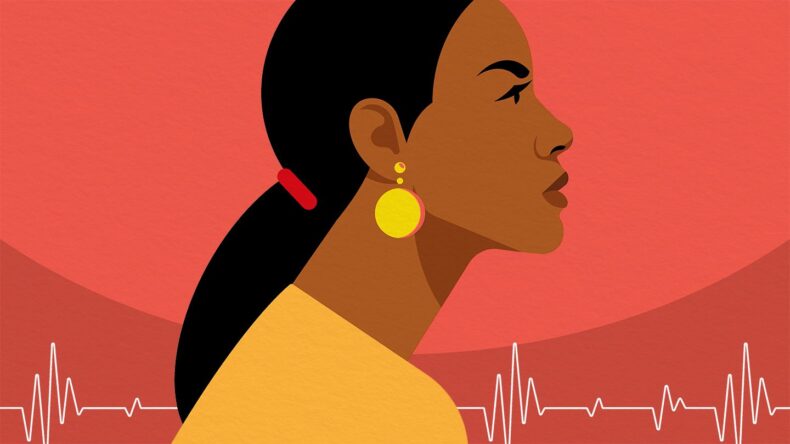World Menopause Month 2022. Being a woman and adoring every aspect of it is the beauty of being a woman. An individual comes with an amazing blend of flaws and perfection, and a woman is no exception to it. Accepting the changes a woman goes through is the most difficult task for her, not only because she experiences them herself but also because society observes them and puts unreasonable microscopic pressure on them.

The stigma surrounding normal events in a woman’s life has made it unbearable for them to live a simple and unheard-of life. Women are scrutinized by society for having periods and not experiencing them as a person who can bleed. A very normal phenomenon experienced by women across the globe is still a topic of gossip for many communities.
With changing times, there should be a change in the narrative, and the topics to be discussed should be women’s physiological, pathological, and psychological health, as well as personal hygiene.

The discomfort faced by women around the world does not increase with the irrational concerns of people keeping an eye on them.
The real problem lies elsewhere while the world focuses on what, how, where, and when a woman does something.
Periods and the forever stigma
The progressive world becomes regressive as soon as the word “period” or “menstrual cycle” enters a conversation. It is still a topic not to be discussed openly, specifically in front of men, irrespective of age.
The monthly cycle of releasing an unfertilized egg by the female body, known as the “period,” is as stigmatized as any serious communicable disease.
Despite being praised for bringing life into this world, they are still not considered a vital entity when it is their health in question.

To reduce the stigma and to spread awareness to aid the ailment that women face with regard to periods, not only a day but an entire month is dedicated to those who need it.
The difference between want and need is highlighted through this awareness program, as women do not want understanding as a desire, but they need it as a basic human right.
Menopause and more
The beginning of mitosis after the meiosis stage of eggs (occurs during the gestational stage or inside the womb) in the female body is prompted by changes in hormones during the pubertal stage of growth and development, which leads to menses or in general term periods.
This repeated occurrence of menses happens from the onset of puberty till the age of 45 (the maximum age to have a menstrual cycle). After this stage, there is a decline in hormones that prompt the release of eggs (ovules), and the cycle of the absence of periods begins.
This reversal in the menstrual cycle is termed menopause and occurs in women aged 45–51 years old.

As far as women are concerned, they do not worry when menopause occurs as they expect it when they start experiencing menses. The trouble begins when it is stigmatised and not prioritised by society.
Menopause is nothing to be afraid of if it occurs during a specific age group, but it becomes a concern if it occurs early.
Early onset is termed perimenopause and has similar symptoms to menopause but in a different age group.
World Menopause Month and Day
To acknowledge the life-changing event known as menopause and not create a ruckus, we need awareness. The organizations meeting that demand are the WHO and the International Menopause Society.
The theme of this year’s awareness program is Cognition and Mood, which focuses on brain fog and mood changes during menopause.

The month of October is dedicated to raising awareness about menopause and perimenopause. As October is World Mental Health Awareness month as well, creating an awareness environment related to menopause and its symptoms becomes easier.
Although World Menopause Day is observed on October 18th, World Menopause Month is initiated on October 1st and runs throughout the month.
Combining the aspects of World Mental Health Awareness Month with World Menopause Month, we come to a better understanding of both these conditions experienced by women.
Symptoms and the dilemma
Out of 30 recognised symptoms some of the signs of menopause include:
- Low energy
- Hot and cold flashes
- Sleeping problems
- Weight gain
- Poor concentration or brain fog
- Urinary changes
- Skin changes
- Mood changes
The major mental health issues faced by women during menopause are depression, anxiety, and mood swings, which are common at other stages in life.
As menopause occurs during midlife at a certain level of life lived, the fluctuations are unacceptable and incomprehensible as they get into their daily life and disturb the routine.
Menopause is nothing to be ashamed of as it is as natural as experiencing menses. Irrespective of marital or relationship status, space should be provided to women.
No woman is exclusive to the stigma, but inclusivity should be practiced to help them and not shun them during an important phase of their lives.
Steps of awareness lead to a happy home

A home can be comprised of just one person—the woman in question; it does not have to be full of people. A happy home is one where everything is accounted for as one understands the why and how of the events that happen and are bound to happen.

Through the awareness program devised by the WHO and the International Menopause Society, we can expect healthy and happy changes in a woman and her surroundings.
Understanding the changes caused by fluctuating hormones provides a better grip at the steering wheel of life and helps in navigating our way away from spiralling negative health issues.

Mental health is a priority for every individual on this planet, and women should be included at every step of it.
During a drastic change such as menopause, they should be allowed to understand themselves as well as have supportive and understanding family members and close acquaintances.













